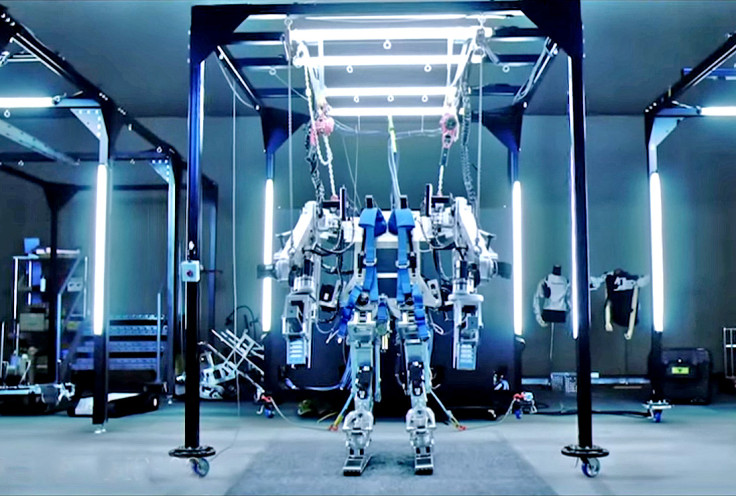Panasonic to mass produce Alien style robot exoskeleton suit to help workers with heavy lifting

Panasonic has announced it will start selling mass-produced robot exoskeleton suits from September to help with labour shortages in construction and agriculture.
The Assist Suit AWN-03 costs ¥1m (£5,222, $8,158) and offers a maximum of 15kg-force. Designed to be worn by human adults weighing between 50-80kg, the device weights about 6kg, although this does not include the weight of the battery and the harness.
The exoskeleton straps around the user's shoulder, waist and one thigh, and embedded sensors send signals to engines in the suit that automatically move to reduce the energy the human needs to use in order to lift a heavy object and decrease the amount of stress placed on the lower back.
The exoskeleton has been developed by Activelink, the robot development arm of Panasonic, together with distribution firm Tatsumi Shokai, and Panasonic is keen to offer its exoskeleton suits to be rented, if companies do not need them all the time.

"Human beings, as they age, the one barrier is their strength and their muscles deteriorate. To counteract that, we wanted to build a support system, so that as people age, they gain experience. So that they can continue working even when they get older, no matter what occupation they are in," ActiveLink says in its new TV commercial.
"We can realise a power barrier-less society when differences in physical strength, such as age and gender have been removed. The Panasonic group is excited about helping you meet this challenge."
In September 2014, Panasonic first announced its plans to develop exoskeleton suits. At the time, it was testing out the AWN-02 test prototype model, which weighed 7kg excluding the battery.
Panasonic interviewed cargo handlers as part of its verification testing of the Assist Suit and successful trials were conducted by handlers working at Osaka port distribution warehouses.
However, once the exoskeleton goes on sale, the firm intends to develop modified versions of the Assist Suit to help with different industries, from agriculture to factory work.
Exoskeletons are not a completely new concept. In August 2014, Swiss startup Noonee launched the Chairless Chair, a 2kg exoskeleton suit that turns into an instant mobile chair.
The invention is currently being trialled in car factories by BMW and Audi.
In Brazil, Duke University neuroengineer Dr Miguel Nicolelis continues work on mind-controlled robotic exoskeleton suits that enables paraplegics to stand up and walk, after the suits were successfully demonstrated at the opening ceremony of the 2014 World Cup.
© Copyright IBTimes 2025. All rights reserved.






















